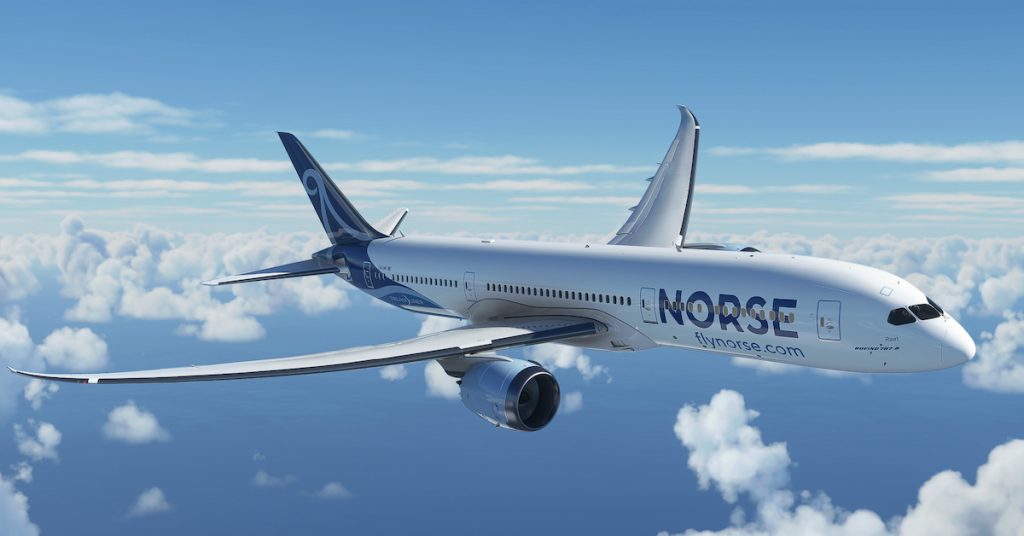Norse Atlantic Airways is set to enhance connectivity between London and South Africa by launching a new route from Gatwick to Cape Town. An important move in the aviation sector, this service promises competitive pricing and increased options for travellers.
The new service, commencing on October 28, aims to challenge the existing travel duopoly and provide passengers with alternative choices. Norse Atlantic’s strategy involves scheduled flights three times weekly, offering flexible and affordable travel opportunities.
Breaking the Duopoly
The launch of Norse Atlantic Airways’ new route from Gatwick to Cape Town marks a significant development in air travel options. Until now, the route was dominated by British Airways and Virgin Atlantic, creating a duopoly that limited passenger choice. With Norse Atlantic’s entry, competition is set to increase, potentially reducing fares and improving service quality.
Bjorn Tore Larsen, the chief executive of Norse Atlantic Airways, stated, “By breaking the duopoly on this route, we are not only expanding travel options for consumers but also driving down costs and putting the customer back in the pilot’s seat.” This highlights the airline’s commitment to transforming travel experiences by prioritising affordability and accessibility.
Route Details and Schedule
Scheduled to begin operations on October 28, the service will run flights three times a week – on Monday, Wednesday, and Saturday. This offers convenient travel scheduling for both business and leisure travellers looking to explore Cape Town without the restrictions of the previous duopoly.
Outbound flights are timed to leave Gatwick at 20:00, arriving in Cape Town the following morning at 09:30, while inbound flights depart Cape Town at 11:45 and reach Gatwick by 21:35 the same day.
Pricing and Class Options
Norse Atlantic Airways aims to appeal to a broad market by offering competitive pricing. Return economy fares start at £499, while the premium class is available from £1,199. This pricing strategy underscores the airline’s commitment to making long-haul travel affordable and accessible to a wider audience.
The inclusion of a premium class underlines Norse Atlantic’s strategy to cater to both budget-conscious travellers and those seeking added comfort and amenities during their flight.
The introduction of this new service is expected to bolster Gatwick Airport’s portfolio, as Norse continues to grow its presence there. Stephanie Wear, Gatwick’s aviation development vice-president, commented on the development, stating it provides excellent connectivity and is beneficial for both tourism and trade.
Gatwick has long been a major hub for international flights, and this new route to Cape Town is anticipated to contribute significantly to the airport’s growth, enhancing its status as a key player in global air travel.
Cape Town stands to benefit from Norse Atlantic Airways’ entry into the market. Increased flight availability is likely to boost tourism in the region, making it more accessible to UK travellers. The enhanced connectivity will also serve to strengthen trade ties between the UK and South Africa, facilitating business interactions and economic exchange.
This initiative is expected to attract a diverse range of visitors, enriching Cape Town’s cultural and economic landscape.
Strategic Vision of Norse Atlantic Airways
Norse Atlantic Airways’ vision extends beyond merely adding a new route. It reflects a strategic objective to expand globally while offering competitive prices. Norse Atlantic’s aim is to make international travel more appealing through customer-centric approaches that put the needs and preferences of passengers first.
Bjorn Tore Larsen’s commitment underscores this, aiming to democratise air travel with a focus on experience and value.
The launch of Norse Atlantic Airways’ route from Gatwick to Cape Town signifies a promising shift in air travel dynamics. By offering competitive fares and breaking the duopoly, Norse enhances choice and accessibility for travellers. The impact of this initiative is poised to extend beyond aviation, positively influencing tourism and trade between the UK and South Africa.

